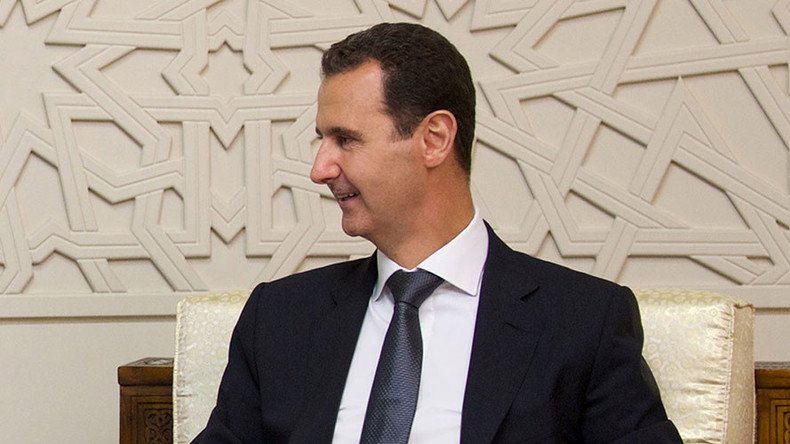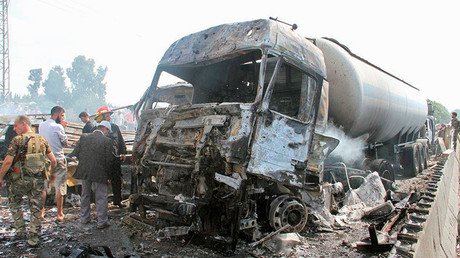'Saudi Arabia stands alone in demanding Syrian president's removal'

Turkey has changed its position toward Syria; the US is engaged in talks with Russia. Meanwhile, Saudi Arabia turns out to be the only one continuing to press the precondition that Bashar Assad must fall, says Middle East affairs expert Ali Rizk.
Syrian government forces made an incursion into Aleppo, managing to retake a major stronghold from the Islamists.
But today a series of explosions have rocked at least four government-held cities in Syria, including the capital, Damascus. Local media reports over 40 people have been killed and at least 60 injured in the blasts.
RT: All four cities were hit by explosions almost at the same time. Is there a possibility that these were coordinated attacks?
Ali Rizk: There is a possibility that this is something coordinated because it is something unprecedented to have these attacks launched by terrorist groups on such a large number of cities: Homs, Damascus, Hassakah, and Tartus. I think an important factor we have to bear in mind is that Saudi Arabia, in particular, is the biggest loser out of the latest developments witnessed in Syria. Turkey has changed its position quite a lot regarding its stance toward the Syrian government; the US is currently engaged in talks with Russia.
We have the G20 summit, the talks between the Russian and the American sides. In the midst of all of this diplomatic flurry, Saudi Arabia turns out to be the biggest loser and the only one which seems to be continuing to press on that precondition that Syrian President Bashar Assad must fall. So, if we take all of that into consideration, I myself can’t rule out the possibility that Saudi Arabia could be behind these coordinated strikes which have been launched by these different terrorist groups. Also, of course, we have to remember that the fighting in Aleppo has not gone according to the wishes of the armed terrorists groups, not gone according to the wishes of Saudi Arabia as well. So, generally speaking, this could be tied to the string of battlefield losses and also political losses which have been inflicted on the armed groups and on the regional sponsors, first and foremost Saudi Arabia.
“I think these are not only terrorist acts, but it is a political message from those who are behind ISIS and why they chose these cities: Homs, Tartus where Russia has a military base, and near Damascus. I think this comes after being defeated in different fronts in Syria, and now they want to change tactics. The new tactic is to target the civilians and… return to the assassination of important people.” - Dr. Bassam Abuabdallah, director of the Center for Strategic Studies, Damascus University, and advisor to the Syrian Ministry of Information.
RT: Islamic State (IS, formerly ISIS/ISIL) has claimed responsibility for the attack in Hasakah, Amaq news agency reported, but no other assault. Who could other perpetrators have been?
AR: It would be one of those terrorist groups, which one in particular we can’t be sure: ISIS, Jabhat Al-Nusra, Jaysh al-Islam. All of these groups have a possibility now. If it is Saudi Arabia, or Saudi intelligence that is coordinated, one would lean toward the possibility of Jaysh al-Islam being behind it. It is one of the more pro-Saudi groups but it could be any of them. ISIS itself has lost a lot in Aleppo as too has Jabhat Al-Nusra… I myself would be very cautious in differentiating between ISIS and Al-Nusra and Jaysh al-Islam; in the end it is one common ideology. There might be some differences, but in the end we have the same Wahhabis extremist ideology among all of these groups.
The statements, views and opinions expressed in this column are solely those of the author and do not necessarily represent those of RT.













